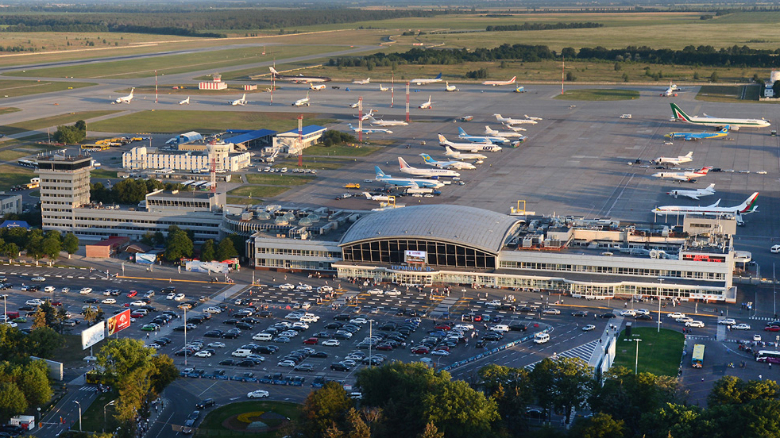Zepto is again shaking up the quick commerce landscape with a fresh $340 million raise, valuing the company at $5 billion.
This round was led by General Catalyst and Dragon Fund, with Epiq Capital joining as a new investor. Existing investors, including StepStone, Lightspeed, DST Global, and Contrary, increased their stakes, signalling strong confidence in Zepto’s future.
Notably, this comes just two months after Zepto raised $665 million at a $3.6 billion valuation in June, taking its 2024 fundraising total to over $1 billion.
“We’ve grown in that 60-day period. Since our last financing, we’ve grown about 20%,” Zepto’s co-founder and CEO Aadit Palicha told CNBC-TV18, adding that “the inflection point is becoming clearer with 70% of stores fully EBITDA-free, cash flow positive, turning profitable faster and faster”.
The funding comes as the quick commerce platform prepares its balance sheet for a possible IPO in the next 18-24 months.
“I think 2026, potentially even late 2025, is a realistic timeline,” said Palicha, adding that the “sweet spot” for Zepto to hit Dalal Street will be once the company starts to generate “significant amounts of free cash flow”.
“It’s not about profitability today. Breakeven is not what people are betting on. They’re betting on (the company’s ability to) generate $300-500 million of free cash flow in a reasonable period,” he added.
Financially, Zepto is on a growth trajectory, with sales expected to exceed ₹5,000 crore in FY24, doubling from ₹2,500 crore in FY23.
Also read: Hurun India Rich List 2024: Zepto’s Kaivalya Vohra is the youngest on the list at 21
Zepto’s Expansion Plans
With the fresh funding, Zepto also plans to double its dark stores to 700 by March 2025 and expand into new markets such as Nasik, Chandigarh, Vizag and Ahmedabad while also deepening its presence in cities like Mumbai, Delhi, and Bengaluru. This expansion strategy aims to capitalise on lower operational costs in Tier-2 cities, where profitability is expected to come faster than metros.
“Nasik is not known to be anywhere close to a metro in terms of a market. The stores that we launched there have hit a thousand orders per day in six weeks. It’s the fastest that we’ve ever been able to achieve. Mumbai, Bengaluru, and Delhi took like three-four months to hit a thousand orders per day,” said Palicha.
“So, the insight really for tier two and tier three markets is that customers are underserved. There is no real quality online or offline options for them in terms of price selection and quality and obviously giving them convenience,” he said, explaining that quick commerce has a stronger value proposition in non-metro cities.
Quick Commerce Market Dynamics
Zepto’s aggressive fundraising and expansion come amid intensifying competition in the quick commerce sector.
Market leader Blinkit has said it will increase its dark store count from about 1,000 by March 2025 to 2,000 by the end of 2026 from 639 at the end of the June quarter. Currently, Swiggy Instamart operates more than 500 dark stores.
In addition to the sustained surge of market leader Blinkit, the onslaught is a full tilt towards quick commerce from BigBasket, which recognises the consumer need for instant deliveries.
E-commerce giant Flipkart has also joined the race with its latest attempt at cracking quick commerce: Flipkart Minutes. The other e-commerce giant, Amazon, is also reportedly set to enter sub-30-minute deliveries by next quarter amid rumours of its intention to pick up a stake in IPO-bound Swiggy with an eye on Instamart.
Zepto’s Vision Beyond Grocery
Over the last few quarters, quick commerce players have gone beyond grocery with forays into traditionally strong e-commerce categories such as electronics, fashion, and apparel.
Zepto has been expanding into high-growth categories such as toys, beauty, cosmetics, and low-ticket jewellery, aiming to capture a slice of the e-commerce market.
Palicha contends that category expansion is driven by what customers expect on the platform.
“Over time, as people got habituated with the service, they actually started expanding their universe of what they search for and hope for on the platform,” explained Palicha.
However, Zepto will not enter categories that fail to find product-market fit, especially in high-stake, high-value purchases in electronics, long-tail fashion, and furniture.
In these categories, Palicha says data showed “a lower degree of product-market fit versus categories like meat and seafood, general merchandise, consumer electronics, fresh and grocery.”
Advertising Revenue as a Growth Lever
Zepto’s ad sales are emerging as a significant revenue stream, with plans to scale from ₹600 crore currently to ₹1,000 crore within the next 12 months.
Ads represent the highest-margin revenue stream for quick commerce players, and Zepto is poised to capitalise on this, with strong demand from D2C brands and FMCG giants.
Navigating Regulatory Challenges
As quick commerce booms, it faces scrutiny from regulatory bodies concerned about its impact on traditional retail.
The rapid expansion of dark stores and aggressive discounting strategies have drawn attention from the government, which is evaluating potential disruptions to the competitive balance in the retail sector.
“We’re not trying to undercut. We’re just trying to do the right thing. I think the government will realise that. Our conversations with them have been productive and constructive. We’re open to feedback. We’re open to figuring out how we can make our growth more inclusive,” said Palicha.
The Road Ahead
Zepto’s bold strategies and rapid growth underscore its ambition to dominate quick commerce and reshape India’s broader retail landscape.
With a focus on expansion, operational efficiency, and new revenue streams, Zepto is positioning itself as a formidable player in the lead-up to its much-anticipated IPO in 2025-2026.
Palicha’s vision is clear: “build a truly exceptional internet company in India that can be benchmarked to the Mercado Libres, the Coupons, the Ubers, the Airbnbs, the Meituans and Pinduoduos of the world. We build a $70-80 billion dollar company that’s generating a billion dollars of free cash flow…If we could do that, it’s going to be a huge moment in the internet ecosystem. It’ll be a Flipkart moment times two.”
Also read: VC firm QED Investors sees immense potential in India’s emerging consumer story
Note: This article have been indexed to our site. We do not claim legitimacy, ownership or copyright of any of the content above. To see the article at original source Click Here












